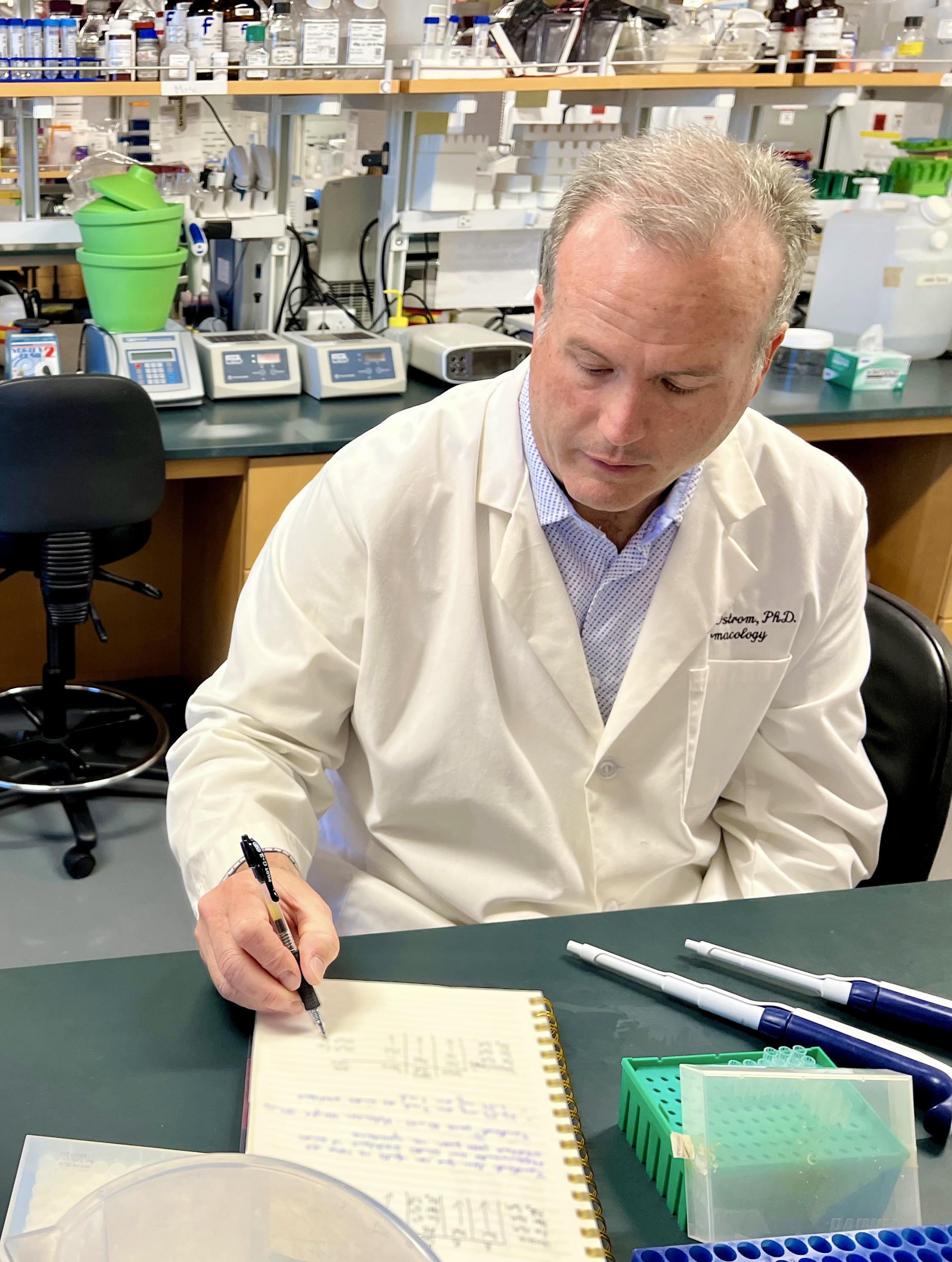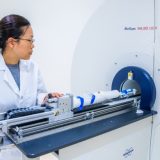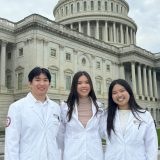$2.2M R01 Grant is Awarded to Dr. Ren Ostrom
June 9, 2023
Professor and Interim Dean Dr. Ren Ostrom and his collaborators have been awarded over $2.2 million for an NIH R01 grant by the National Heart Lung and Blood Institute for critical basic science research into developing new drugs for people with asthma.
The project, “Compartmentalized signaling and crosstalk in airway myocytes,” will investigate the mechanisms inside airway smooth muscle (ASM) cells that cause specific hormones, neurotransmitters, and drugs signal within sub-cellular compartments that optimize their effects on cell function. The three primary aims will use imaging techniques to understand the spatial characteristics of signaling by G protein-coupled receptors, examine how these receptors generate unique patterns of signals, and establish the relationship between spatial and temporal regulation of contractile proteins by cAMP and calcium signals.
“I am very excited to push the boundaries of our understanding of how signals are spatially organized in tiny compartments inside cells and how these can be leveraged to develop new therapies for asthma,” Dr. Ostrom says. “My collaborators, Dr. Tom Rich of the University of South Alabama and Dr. Raymond Penn of Thomas Jefferson University, bring complementary knowledge and expertise to this project that will allow us to make significant breakthroughs.”
The ultimate goal is to enhance the understanding of compartmentalized signaling about how receptors employ specific signaling mechanisms to produce efficient and targeted functional effects of hormones and medications. From a translational perspective, the findings of this research could provide a basis for developing new drugs that target signaling compartments, potentially improving the management of asthma symptoms such as airway hyperresponsiveness, airway remodeling, and airway inflammation.




